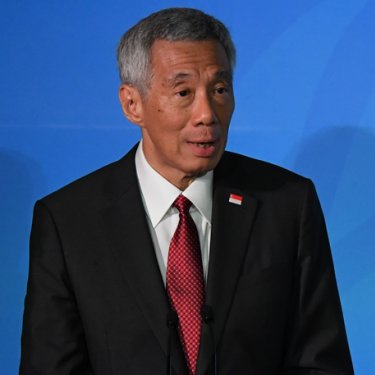RSF’s denounces Singapore’s disregard of press freedom ahead of its Universal Periodic Review

Reporters Without Borders (RSF) has sent its evaluation of the current situation in Singapore to the UN Human Rights Council in Geneva ahead of Singapore’s next Universal Periodic Review (UPR) by the council’s other members in May. RSF’s evaluation deplores the Singaporean government’s complete disregard for the basic principles of press freedom.
The city-state’s authorities accepted 117 recommendations at the end of the council’s last UPR of the situation in Singapore in 2016. Absolutely none of them concerned press freedom although several member states had urged Singapore to amend laws criminalizing defamation, end media censorship by the state apparatus and allow the emergence of independent media not held back by self-censorship.
Five years later, the situation is even worse, notably as a result of the Protection from Online Falsehoods and Manipulation Act (POFMA), which took effect in October 2019. Also known as the “anti-fake news” law, it grants every member of the government the right to “correct,” delete or block access to any online content in order to “prevent a diminution of public confidence in (...) the government.”
Bad model
“We urge the representatives of Human Rights Council member countries to challenge Singapore’s representatives about their complete disregard for the basic principles of press freedom,” said Daniel Bastard, the head of RSF’s Asia-Pacific desk. “It is unacceptable for a member state to refuse to discuss this absolutely central issue with its peers, no matter how briefly.”
Bastard added: “Singapore boasts of being an economic development model but, as regards the freedom to inform, it is a model of what not to be. Democracies should not tolerate this state of affairs.”
Never out of power since the city-state’s independence in 1965, Prime Minister Lee Hsien Loong’s People’s Action Party has passed legislation that allows the government to oversee the appointment of those who run the leading media outlets, including their editors and the members of their boards of governors.
Self-censorship
The government also arbitrarily decides whether a foreign media outlet may or may not be distributed within the city-state. Under several laws, including the sedition law and criminal code articles, publishing information that, for example, “promotes feelings of ill-will and hostility” within the population is punishable by imprisonment. The wording of these laws gives judges considerable leeway and, as a result, fosters a great deal of self-censorship within the news media.
The government rarely has to carry out the threat of judicial harassment against journalists working for any of the country’s mainstream media, whether print, broadcasting or online media, because they either belong to the MediaCorp group, which is owned by a state investment company, or they are owned by Singapore Press Holdings, whose bosses are appointed by the ministry of communications and information.
Judicial harassment
A handful of news sites and blogs try to provide Singaporeans with reliable and independently reported information but those who run them are often the victims of judicial harassment by the government.
The blogger Leong Sze Hian, for example, continues to face the possibility of a two-year prison sentence in a criminal defamation case brought by the prime minister just because he shared an article from the Malaysian website TheCoverage.my on Facebook in November 2018.
A request by the New Naratif website to be registered as Singaporean company was rejected outright by the authorities in 2018.
After falling seven places in the space of a year, Singapore is ranked 158th out of 180 countries in RSF's 2020 World Press Freedom Index and is now coloured black on the RSF press freedom map because the situation is classified as “very bad.”



